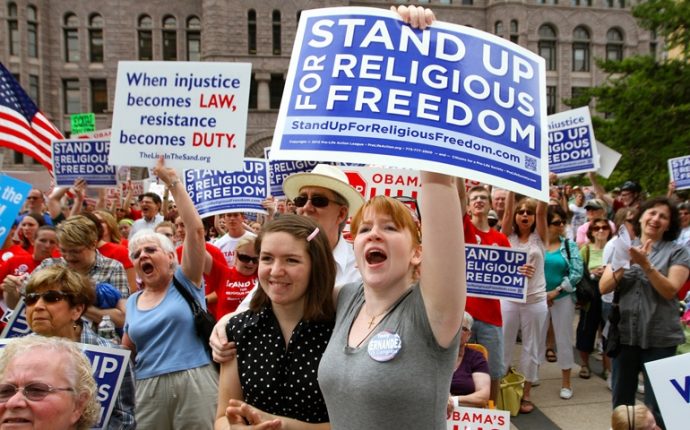More Americans need to understand the basics — religious liberty is not a privilege. Here is David French:
Legal leftists who attack Neil Gorsuch hold an odd view.
Thus far there are two unfolding lines of attack on Judge Neil Gorsuch. The first is so intellectually absurd as to be frivolous — that he rules for the wrong people. In other words, the critic ignores the legal reasoning and focuses only on the legal outcome. If a poor person or a person of color loses, the judge is wrong. If a corporation wins, the judge is wrong. Judges are not legislators, however, and critiques that barely even mention (or ignore entirely) applicable legal standards when evaluating case outcomes may sometimes play well on television but prove difficult to sustain in practice. Unless a judge utterly lacks integrity, he or she finds himself ruling against his ideological friends all the time. (Witness the Obama administration’s remarkable number of 9–0 defeats before an ideologically divided Supreme Court.)
The second critique is far more philosophically substantial and goes to the heart of how we define our most fundamental rights. Essentially, a number of legal leftists believe that Judge Gorsuch has entirely too much respect for religious freedom. Writing in Slate, Dahlia Lithwick lays out this view at length. First, she claims that “our current religious liberty jurisprudence . . . is extremely deferential toward religious believers.” She claims that “religious dissenters who seek to be exempted from neutral and generally applicable laws are given the benefit of the doubt, even when others are harmed. Sometimes those harms are not even taken into account.”
She continues:
“Gorsuch agrees with all of this and then some. His record reflects a pattern of systematically privileging the rights of religious believers over those of religious minorities and nonbelievers. It is, of course, vital and important to protect religious dissenters; the First Amendment could not be clearer. But the First Amendment is equally anxious about state establishment of religion, an anxiety Gorsuch is less inclined to share.”
Read more: National Review

